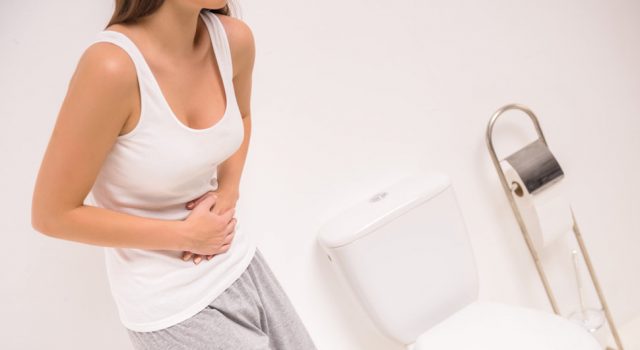PAINFUL URINATION

Pain during urination is the most common symptom of the pathology of the urinary system. It accompanies both inflammatory diseases and serious oncological pathology. Therefore, in order to make an accurate diagnosis and to assign the most optimal course of therapy, a thorough examination by the doctor and a number of laboratory analysis and tests are required.
Causes of Painful Urination
The most common causes of painful urination include cystitis, prostatitis, bladder or kidney stones, genital infections, presence of foreign body in the urethra. Also side effects of some drugs and mechanical irritation can cause painful urination.
Bladder Stones
Bladder stones are the manifestation of urolithiasis, characterized by the presence of salt or calcified concrements in the cavity of the bladder. Bladder stones are expressed by pain syndrome, disorders of urination, and the presence of blood or pus in the urine. Bladder stones are diagnosed by ultrasound of the urinary tract, general urine analysis, cystoscopy or cystography. The main treatment is the fragmentation and removal of bladder stones by contact and remote method (lithotripsy) or by surgery.
Genital infections
If the painful urination is accompanied by burning, itching and profuse discharge with abnormal odor, it can be a manifestation of an infectious disease of the genitals. These can be symptoms of such sexually transmitted diseases as Gonorrhea, Clamidiosis, Yeast Infection or Genital Herpes.
Cystitis
Cystitis is an acute or chronic inflammation of the mucous membrane of the bladder. In acute cystitis, as a rule, inappropriate urination and the presence of leukocytes or pus in the urine are observed. Intervals between desires to urinate can be reduced to 5-15 minutes including at night. The volume of each portion of urine is not large, and its passage through the urethra is accompanied by itching, burning and pain (especially at the end of urination)
Kidney stones
Usually the first symptom of the kidney stone disease is acute stitching ache in the back (in the area of the diseased kidney) or in the lower part of the abdomen. Pain can spread into the inguinal area, and also be accompanied by nausea and vomiting. The pain will last until the stone comes out with urine, because the muscular walls of the ureter will try to push it outward. The damage to the mucous membrane of the urinary tract can cause occurrence of blood in the urine (visible or invisible to the eye). Going down to the bladder, the stone will cause strong urge to urinate and pain and burning when urinating.
Prostatitis
Prostatitis is an inflammation of the prostate. Chronic prostatitis affects about 30% of men between the ages of 20 to 50 years. This is one of the most common urological diseases among men. The prostate gland produces a secret that, when mixed with seminal fluid, supports the activity of spermatozoa and their resistance to various unfavorable conditions. With prostatitis, there are numerous problems with urination, decreased libido and erectile function is impaired.
Drugs
Painful urination can be one of side effects of some medications or treatments such as anti-inflammatory or anticholinergic drugs causing urinary irritation.
Painful urination can also be caused by mechanical irritation. Basically, it happens because of douching (the intentional introduction of solutions into the vagina), which is done too often, or because of the use of some particular contraceptives, personal hygiene items, lubricants, etc.
What to Do if You Suffer from Pain During Urination
Regular pain when urinating requires diagnosing and treatment. And the necessary therapy should be assigned only by a doctor – self-treatment is inadmissible.
The danger in the absence of treatment lies in the fact that the acute form of the disease can become chronic causing various complications. After the detection of diseases of the genitourinary sphere, appropriate therapy should be assigned by the doctor as soon as possible.
Treatment of Painful Urination
There are various treatment options that can help with dysuria. Treatment usually depends on the signs and causes of painful urination, such as the presence of cystitis, pyelonephritis, urethritis or colpitis.
Traditional methods of treatment, natural remedies and additional methods of treatment can alleviate the symptoms of pain when urinating. The main medications for the treatment of painful urination include: antibiotics, urinary analgesics, anti-fungal preparations.
Maintenance of personal hygiene and living a healthy life will contribute not only to eliminating problems with urination, but also to the prevention of this disease.
Painful Urination FAQ
What to do if during pregnancy urinating is painful?
Pregnancy is often associated with many pain symptoms. The more carefully the woman will keep track of her state of health and the quicker she respond to all its changes, the easier she will able to solve all possible problems. While frequent urination is normal during pregnancy, pain during this process can indicate pathologic changes in the woman’s body and it should be suppressed as early as possible, which will allow the woman to recover without any accompanying complications. So if you feel even slight pain during urination, you should visit your doctor and submit to urine testing.
What to do if I have acute pain during urination after sex?
Often, the pain experienced by one of the sexual partners after sex, is the reason for the sexual continence. This problem should not be left without attention, especially if you do not understand why you feel pain during urination after sex, especially if it comes with burning in the urethra and genital area.
The reasons for this ailment can be several, as a rule, in women and men they are different. More often the pain during urination after sex, especially unprotected, is provoked by bacteria of sexually transmitted infections. They include microorganisms that cause chlamydia, ureaplasmosis, mycoplasmosis, gonorrhea, trichomoniasis, genital herpes and candidiasis (in men, a similar disease is called candida balanoposthitis). Even if the symptoms of the disease occurred only in one of the sexual partners, the both partners must have tested to make the correct diagnosis.

